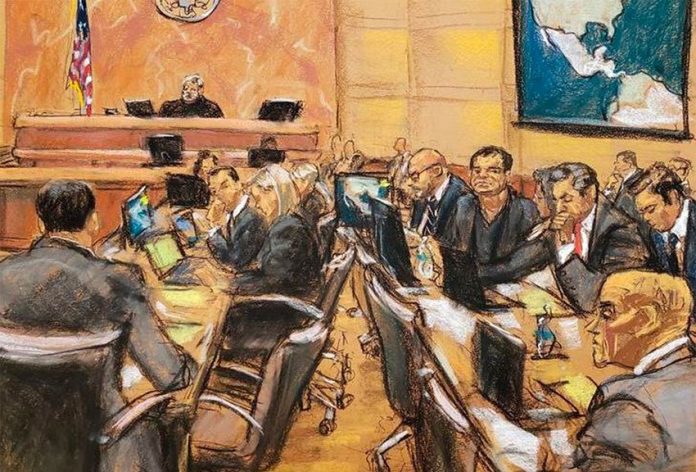A drug trafficker testified at the New York trial of Joaquín “El Chapo” Guzmán that he spent millions of dollars buying professional Mexican soccer teams.
Tirso Martínez Sánchez, nicknamed El Futbolista, told jurors Monday that he was the owner of teams in Querétaro, Celaya, Irapuato, La Piedad and Mérida, all of which were bought with the proceeds of distributing drugs in the United States for Mexican cartels.
The trafficker, who according to his own testimony worked for both El Chapo’s Sinaloa Cartel and the Juárez Cartel between 1995 and 2003, said he bought the Venados club in Mérida, Yucatán, for between US $600,000 and $700,000 and the Reboceros club in La Piedad, Michoacán, for US $2.2 million.
Martínez added that he sold the latter club in 2004 for $10 million, explaining that he made a $4 million net profit after paying off players and other employees.
Once the Mexican Football Federation became aware of his ownership of soccer teams in 2006, the witness said, it offered to buy his interests in the clubs for $10 million.
In just three years between 2000 and 2003, Martínez’s trafficking activities are estimated to have netted him between $40 million and $50 million.
But the witness said that he lost between $2 million and $3 million betting on cockfights held at palenques, or cockfight rings, in several Mexican cities.
With his remaining riches, Martínez said, he bought one restaurant in Tijuana and another in the state of Illinois, a car dealership in Los Angeles, four clothing stores and a light plane and cars, among other purchases.
“I spent all my money betting on cocks, horses, properties, cars, houses, parties and women,” the 51-year-old said.
He told jurors that he only had five assets left – a house, a ranch and three other properties – all located in Mexico.
Martínez also testified that he had collaborated with Guzmán on the operation of a train route that transported cocaine from Mexico to the New York area. He said that El Chapo “invented” the route that terminated in a New Jersey warehouse.
The witness said he met Guzmán after the former drug lord’s first escape from prison in 2001 and estimated that during the time he worked with him, the Sinaloa Cartel earned between $500 million and $800 million in cocaine sales in the United States.
Martínez told the court that he stopped working for the cartel in 2003 because he believed that the police were closing in on him, after which he said that he feared that patas cortas (short legs), as he called Guzmán, would have him killed.
Arrested in Mexico in 2014, Martínez was extradited to the United States the following year where he pleaded guilty to drug trafficking and importation charges.
He, like other cartel witnesses who have appeared at Guzmán’s trial, hopes to receive a reduction to his prison sentence.
If convicted of crimes including trafficking, criminal conspiracy and money laundering, Guzmán faces a probable sentence of life imprisonment. The trial continues.
Source: Notimex (sp)
